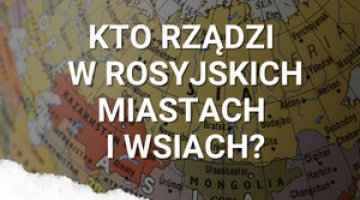Seventeenth package of EU sanctions against Russia: a signal to Moscow and Washington
On 20 May, the European Union adopted its 17th sanctions package against the Russian Federation. This package significantly expands the list of entities subject to EU sanctions. It includes 189 tankers from the ‘shadow fleet’, along with companies involved in exporting Russian oil – among them Surgutneftegaz, one of Russia’s key oil producers. The sanctions also target dozens of companies and individuals involved in supplying weapons to Russia. Additionally, the list of dual-use goods banned from export to Russia has been extended, now covering items such as spare parts for machine tools. Over 30 companies linked to Russia’s defence sector and involved in sanctions evasion – many of them based outside Russia (notably in Turkey, Vietnam, and the United Arab Emirates) – have been barred from accessing EU goods. Several dozen individuals connected to the Russian judiciary were sanctioned for human rights violations. More than 20 entities were listed due to ‘destabilising activities’ (including the spread of disinformation) within the EU.
The adoption of the 17th sanctions package serves primarily as a political signal aimed at two key recipients: Russia and the United States. The new restrictions demonstrate the European Union’s continued unity and its resolve to maintain pressure on Moscow, despite internal differences among member states. European countries are also signalling that, amid growing uncertainty about Washington’s long-term commitment to the sanctions regime, they are prepared to take the lead in this area. Through this move, Brussels and several EU capitals are seeking to encourage the United States to adopt similar measures.
Commentary
- At this stage, sanctions pressure is exacerbating Russia’s economic challenges. Despite the relatively limited effectiveness of the new package, maintaining economic pressure on the Russian Federation is particularly important given its worsening macroeconomic indicators. Problems with maintaining public financial stability, driven in large part by the low price of oil (see ‘Low oil prices are forcing Russia to revise its 2025 budget’), are particularly severe. In this context, the low price of oil creates favourable conditions for tightening sanctions further – for instance, by lowering the threshold of the price cap mechanism, which, according to media reports, the EU plans to propose within the G7 framework. At present, Russian oil costs less than $60 per barrel, allowing European companies to freely export it to third countries.
- Restricting access to dual-use goods – reinforced by the current sanctions package – is critically important for limiting the effectiveness of Russia’s defence sector. Particularly impactful is the process of adding new companies from third countries onto the sanctions list, which helps to close off additional channels used to circumvent restrictions. In doing so, the EU is expanding its toolkit to include measures with extraterritorial effects, resembling US secondary sanctions. Washington’s designations have proven effective in deterring companies based in third countries from engaging with Russian entities listed by the United States.
- Opposition to new sanctions from certain EU member states suggests that alternative approaches may be needed to maintain the current course. The EU’s restrictions targeting the ‘shadow fleet’ have limited potential to significantly disrupt Russia’s oil exports, as they do not include the threat of secondary sanctions against third-country importers. Efforts to implement effective restrictions are further hampered by the stance of some member states, as demonstrated during negotiations over the 17th sanctions package. According to media reports, the EU ultimately refrained from sanctioning Litasco Middle East DMCC – a company linked to Russian oil giant Lukoil – due to objections from Hungary. To push forward with further sanctions, the EU may need to explore new avenues, such as leveraging trade regulations.
- The EU has pledged to maintain pressure on the Russian Federation and is linking any further sanctions to the progress of Russian-Ukrainian negotiations. European leaders are preparing additional restrictive measures aimed at strengthening Kyiv’s position and compelling Moscow to agree to a 30-day ceasefire. This message was reinforced by the coordination of the EU’s latest sanctions package with new British measures (in May, London imposed sanctions on more than 100 oil tankers). The EU’s determination is further reflected in the launch of work on the next sanctions package and the European Commission’s publication, in early May, of an action plan to phase out Russian hydrocarbon imports by the end of 2027 (see ‘The European Commission’s plan for abandoning Russian energy imports’). It is worth noting in this context that the upcoming decision on extending sectoral sanctions, which are set to expire at the end of July, will be an important test of EU unity.





